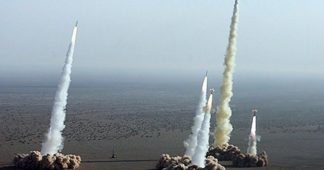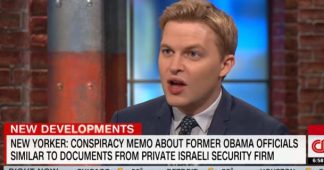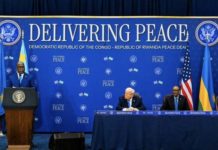September 21, 2018
IRmep filed a 22-page federal lawsuit (PDF) to compel National Archives and Records Administration (NARA) presidential libraries to release Bill Clinton and George W. Bush-administration letters signed under intense Israeli government pressure. The letters were signed early during each presidential administration and promise the U.S. will not pressure Israel over its nuclear weapons program. Similar letters were signed by the Obama and Trump administrations, but those records are not yet legally accessible under the Freedom of Information Act or the Presidential Records Act.
Existence of the presidential letters was reported by Adam Entous in a June 19, 2018 report in The New Yorker , “How Trump and Three Other U.S. Presidents Protected Israel’s Worst-Kept Secret: Its Nuclear Arsenal.” Entous wrote:
“The first iteration of the secret letter was drafted during the Clinton Administration, as part of an agreement for Israel’s participation in the 1998 Wye River negotiations with the Palestinians. In the letter, according to former officials, President Bill Clinton assured the Jewish state that no future American arms-control initiative would “detract” from Israel’s “deterrent” capabilities, an oblique but clear reference to its nuclear arsenal. Later, Israeli officials inserted language to make clear to Washington that Israel would “defend itself, by itself,” and that it would, therefore, not consider the American nuclear arsenal to be a substitute for Israeli nuclear arms. George W. Bush, when he became President, followed Clinton’s lead, signing a similar letter, former officials told me.”
IRmep believes Israel’s overall intention was to ensure that presidents Clinton, Bush, Obama and Trump would violate the Symington & Glenn amendments to the U.S. Arms Export Control Act which place restrictions on foreign aid to foreign countries. Israel has received more foreign aid from the United States, demanded by its U.S. lobby, than any other foreign country. The AECA requires special protocols—including cut-offs or congressional waivers to avert cut-offs— for aid to non NPT recipients of U.S. aid. By securing written pledges from each incoming president, Israel also hoped to maintain a policy of “ambiguity” as to whether it has nuclear weapons. By insisting on maintaining such a “gray zone” Israel hopes to transcend calls for international inspections and informed debate about its arsenal. Israel apparently hopes the U.S. formally will continue to refuse to talk about Israel’s nuclear weapons program as fact, precluding other countries from raising questions of Israel’s number of weapons, deployment, waste handling, and use doctrine.
IRmep believes the letters are secret because they harm, rather than advance, U.S. national security. Although the National Archives and Records Administration claimed during the FOIA administrative process that even confirming the existence of such letters would be classified, IRmep argues that such information cannot properly be classified since the overall purpose of such secrecy is “to conceal violations of the law.”
LEGAL DOCUMENTS
| 08/31/2018 | IRmep Complaint (PDF) |
Published at https://irmep.org/cfp/letters/default.asp











